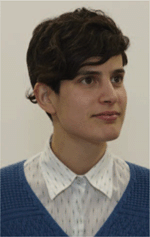Data driven update to industry Life-Saving Rules
Mariana Carvalho A E , Kirsty Walker B , Odunlami Adeogun C , Melissa Mark D and Olav Skår AA IOGP, 40 Basinghall Street, London, EC2V 5DE, UK.
B Schlumberger Oilfield UK Plc, Peregrine Road, Westhill Business Park, Aberdeen, UK.
C Husky Energy Inc., Calgary, Alberta, Canada.
D BP.
E Corresponding author. Email: mc@iogp.org
The APPEA Journal 60(2) 403-408 https://doi.org/10.1071/AJ19082
Accepted: 4 March 2020 Published: 15 May 2020
Abstract
The International Association of Oil & Gas Producers (IOGP) is a global forum in which member companies identify and share best practices to achieve improvements in many areas including upstream safety. The IOGP first published Life-Saving Rules in 2010, having based the choice of topics covered and actions recommended on an analysis of 1484 fatal incident reports and 1173 high potential event reports collected through IOGP’s annual Safety Performance Indicators. In 2017, IOGP launched an initiative called Project Safira with the aim of eliminating fatalities; one of the work streams within this project was to refresh, simplify and reduce the number of industry Life-Saving Rules to encourage industry standardisation. An industry team of subject matter experts, health, safety and environment (HSE) and operations professionals conducted a comprehensive analysis of the latest 10 years of fatality data and streamlined the original 18 rules down to nine, while retaining the level of applicability in fatality prevention and incorporating the latest thinking on human performance and lessons learned from member companies’ experiences in implementation of similar programs. The Life-Saving Rules are not intended to replace company HSE management systems but rather to complement existing organisational processes and procedures. The rules provide simple actions, in the form of ‘I statements’ which can provide a final barrier that individuals have control over, using their own actions to prevent fatalities. From 2008 to 2017, 376 workers lost their lives in incidents that may have been prevented by following one of the new nine IOGP Life-Saving Rules.
Keywords: collaboration, fatality prevention, industry, safety, upstream.

Mariana Carvalho is the Occupational & Process Safety Manager for the IOGP. Having started working for IOGP 8 years ago supporting its safety work, Mariana has managed the publishing process, organised external events and is closely involved with the global safety data collection process. In her current role she is responsible for all health and safety projects and coordinates two standing technical committees and all related subcommittees and task forces. She has been instrumental in coordinating Project Safira, which aims to eliminate fatalities in the upstream industry through work in four areas: Life-Saving Rules, aviation, process safety and motor vehicle crashes. Mariana holds a Chemistry Degree from Imperial College London and a Masters in the Technology and Analysis of Archaeological Materials from UCL. |

Kirsty Walker is the global Operational Performance Systems Project Manager – HSE at Schlumberger. She has over 25 years of experience in health, safety and environmental management in the upstream oil and gas industry. She has worked closely with IOGP for the past 15 years, having chaired their Safety Data Sub-Committee since 2010. This group produce annual reports on upstream lagging safety, process safety and motor vehicle crash data. She has also authored technical papers on identifying trends in this data and learning from the data, presented at SPE and Energy Institute technical conferences. She also chaired the 2008–2011 IOGP Task Force to develop the initial upstream industry Life-Saving Rules and was vice chair of the Task Force to update the Life-Saving Rules during 2017–2019. She has also participated in the UK StepChange for Safety Human Factors group and the 2013–2014 review of the OPITO Minimum Industry Safety Training Standard for offshore workers. She is a regular Safety Committee member for SPE HSSESR regional and global technical conferences. Kirsty received her BEng in Minerals Engineering from the Camborne School of Mines and her PhD from the School of Chemical Engineering University of Birmingham, UK. |

Odunlami (Abbey) Adeogun has over 20 years of practical experience starting with service organisations before moving to the oil and gas industry. He has worked in various capacities as a safety professional both in projects and operations. His focal areas include industrial hygiene, risk assessment, management system, standard and program development. Abbey worked in both offshore and onshore environments in Nigeria and in corporate offices in the USA. He currently works in the corporate office of Husky Energy as Safety Specialist looking after Life-Saving Rules and Human Factors. Abbey holds an MSc in Mechanical Engineering from the University of Lagos, an MSc in Occupational Safety & Health from the Columbia Southern University (USA) and an MBA in Health & Safety from the University of Fredericton (Canada). He is a Certified Safety Professional and an active member of Canadian Society of Safety Engineering. Abbey served in the first IOGP Life-Saving Rules Task Force transitioning 18 Life-Saving Rules into the current nine. He is a member of the current IOGP Life-Saving Rules Implementation Task Force. He also served on the Energy Safety Canada Task Force on Line of Fire and is currently serving in the Task Force on Dropped Objects. |

Melissa Mark has 20 years of hands-on experience in the oil and gas industry serving in Operations and HSE leadership roles. Melissa has worked in both offshore and onshore operations in the Gulf of Mexico, North Sea UK and Trinidad in roles of Facilities Engineer, Operations Team Lead, Operations Manager, SEMS Program Manager and HSE Manager. In her current role as Life-Saving Rules Program Manager, Melissa is leading BP Upstream’s implementation of the IOGP’s Life-Saving Rules. Melissa holds a BSc in Chemical and Process Engineering from the University of the West Indies, a Post Graduate Diploma in Business Administration, Certified Safety Professional (CSP) accreditation and is a member of IOSH. Melissa is deeply passionate about the promotion of STEM education in young women and deepening the impact of the HSE discipline in the workplace. As a result, she is Chair of the Women’s Energy Network Young Women Energized Program, a BP STEM Ambassador and a member of the ASSP Membership Development Committee. |

Olav Skår was seconded from Shell to IOGP as Safety Director in 2019. He brings some 30 years of experience, mainly focused towards well activities in diverse and challenging environments. He has held roles from the purely technical through site, team and broader leadership in countries like The Netherlands, UK, New Zealand, Thailand, Norway, Syria, Algeria and Qatar and is now in London. On safety specifically, he believes that systems and tools designed to manage risks are most effective when complemented with respect, care, inclusion and excellence in the planning and execution of our operational tasks. Olav is proud to be a Visiting Professor with Robert Gordon University in Aberdeen. He has contributed as a Trustee with the International Well Control Forum, served on the advisory panel of the International Association of Drilling Contractors and chaired the Oil and Gas UK Wells Forum. He is a longstanding member of the SPE. |
References
Bryden, R., Gradinger, S., Twilhaar, D., and Paul, A. (2016). Re-energising the life-saving rules. In ‘SPE International Conference and Exhibition on Health, Safety, Security, Environment and Social Responsibility, Stavanger, Norway, 11–13 April 2016.’ (Society of Petroleum Engineers.)Fraser, S., and Colgan, D. (2017). Golden safety rules: are they keeping us safe? The APPEA Journal 57, 41–48.
| Golden safety rules: are they keeping us safe?Crossref | GoogleScholarGoogle Scholar |
Peuscher, W., and Groenewge, J. (2012) A big oil company’s approach to significantly reduce fatal incidents. In ‘SPE International Conference on Health, Safety and Environment in Oil and Gas Exploration and Production, 11–13 September 2012, Perth, Australia.’ (Society of Petroleum Engineers.)
Walker, K., Sunderland, J., Fraser, S., and Peuscher, W. (2012) Oil and Gas Producers Association (IOGP) Life-Saving Rules. In ‘SPE International Conference on Health, Safety and Environment in Oil and Gas Exploration and Production, 11–13 September 2012, Perth, Australia.’ (Society of Petroleum Engineers.)


